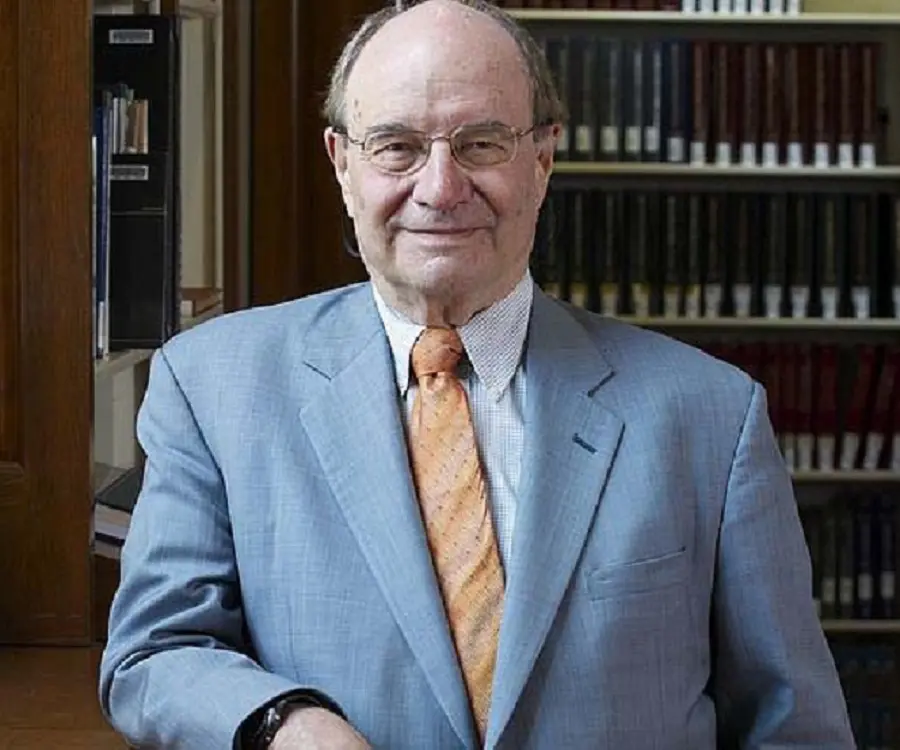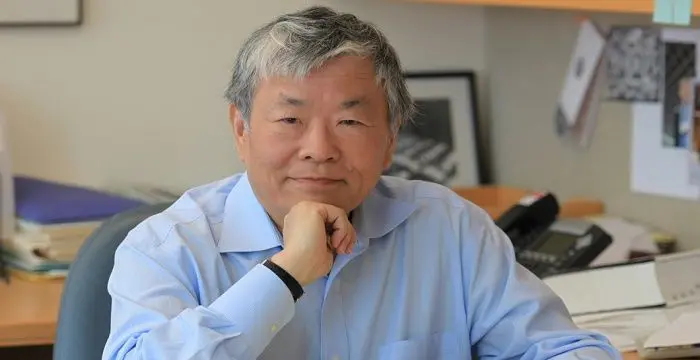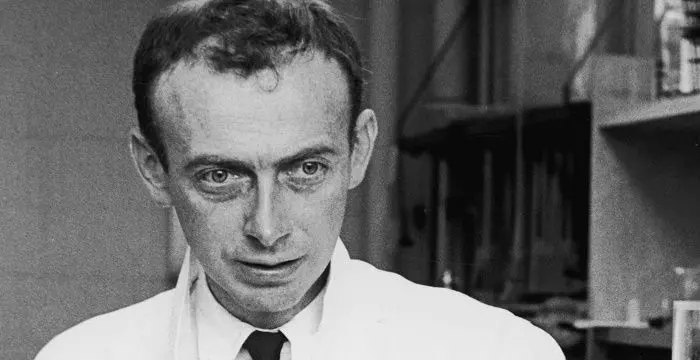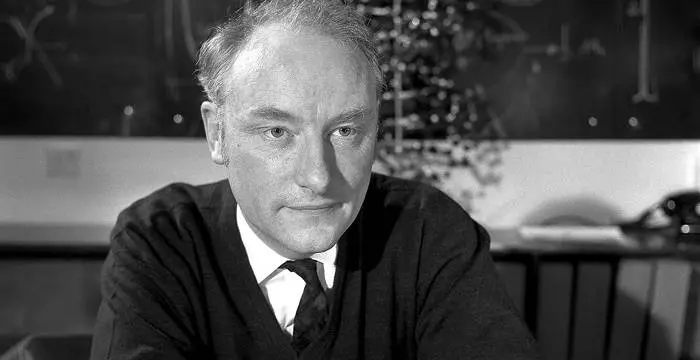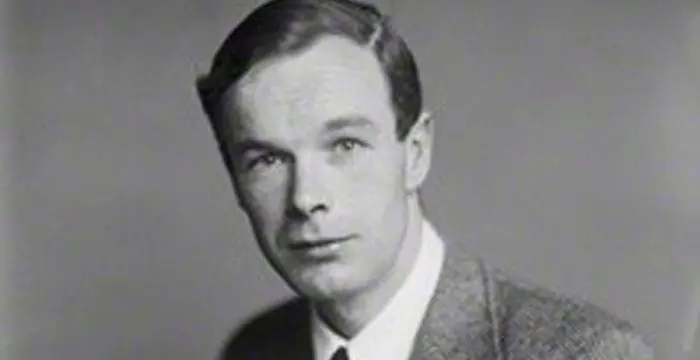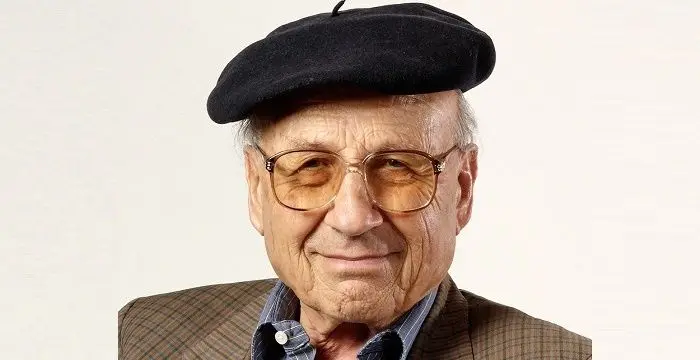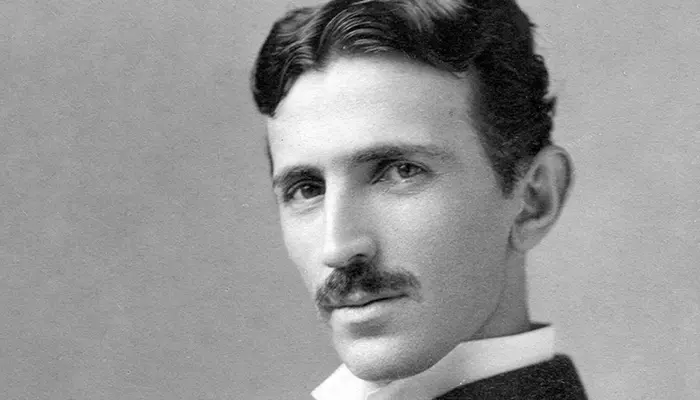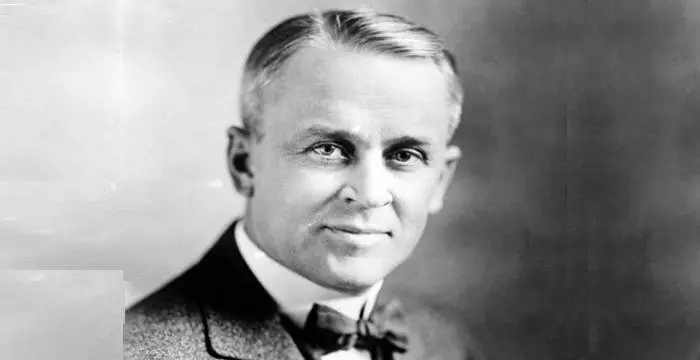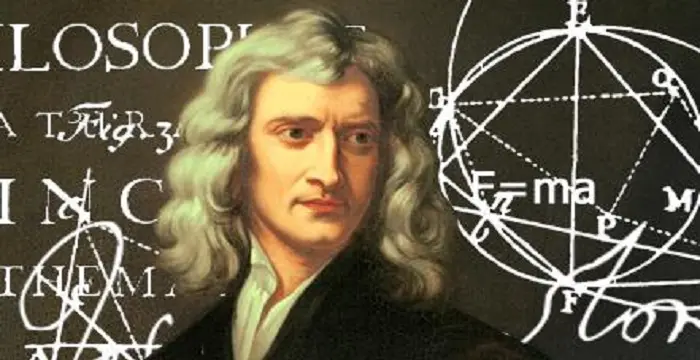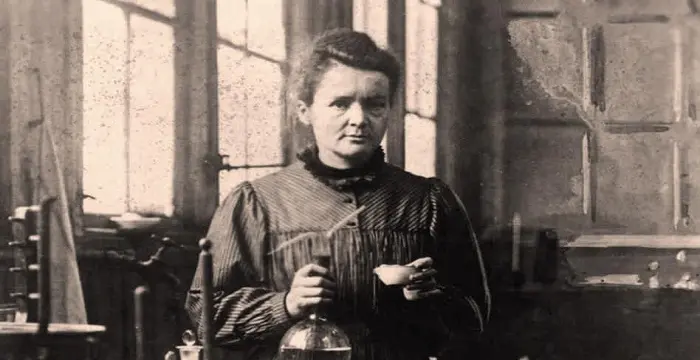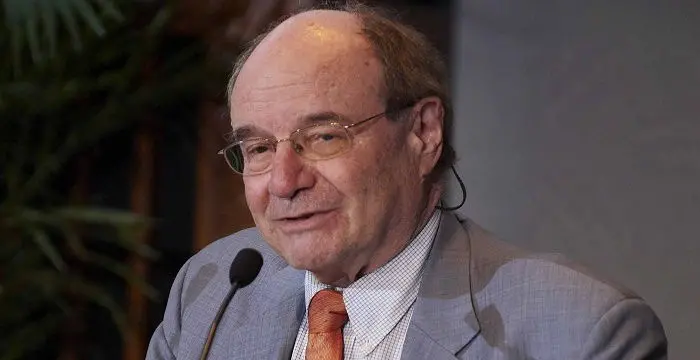
Walter Gilbert - Biochemists, Birthday and Childhood
Walter Gilbert's Personal Details
Walter Gilbert is an American biochemist and physicist who won a share of the Nobel Prize in Chemistry in 1980
| Information | Detail |
|---|---|
| Birthday | March 21, 1932 |
| Nationality | American |
| Famous | Harvard University, Trinity College, Cambridge, Scientists, Physicists, Biophysicists, Molecular Biologists, Biochemists |
| City/State | Boston, Massachusetts |
| Spouses | Celia Stone |
| Universities |
|
| Notable Alumnis |
|
| Birth Place | Boston, Massachusetts, United States |
| Gender | Male |
| Father | Richard V. Gilbert |
| Mother | Emma (Cohen) |
| Sun Sign | Aries |
| Born in | Boston, Massachusetts, United States |
| Famous as | Biochemist, Physicist, Molecular Biologist |
// Famous Scientists
Juliane Koepcke
Juliane Koepcke is a German-Peruvian biologist, who was the lone survivor among the 92 passengers and crew of the ill-fated LANSA Flight 508 that crashed in the Peruvian rainforest on 24 December 1971. Know more about her life in this biography.
Henry Cavendish
Henry Cavendish was a theoretical chemist and physicist, renowned for discovery of hydrogen and calculation of the mass of earth. To know more about his childhood, profile, timeline and career read on
Konstantin Tsiolkovsky
Konstantin Tsiolkovsky was a Russian rocket scientist and a pioneer of astronautics. This biography provides detailed information about his childhood, family, personal life, career, achievements, etc.
Walter Gilbert's photo
Who is Walter Gilbert?
Walter Gilbert is an American biochemist and physicist who won a share of the Nobel Prize in Chemistry in 1980. He is also an internationally acclaimed pioneer in molecular biology. The son of a prominent economist and a psychologist, he grew up in an intellectually stimulating environment and developed a voracious appetite for reading. He loved science from an early age and as a young boy became a member of a minerological society and an astronomical society. While studying in high school he became drawn to inorganic chemistry and nuclear physics. A brilliant student, he was easily accepted into the Harvard University and graduated with a degree in physics. Then he proceeded to the Cambridge University for his doctorate and earned his Ph.D. in Physics under the supervision of the Nobel laureate Abdus Salam. He returned to Harvard to begin his academic career and joined the faculty as a lecturer in physics. Over the years he would serve as assistant professor of physics, associate professor of biophysics, and professor of biochemistry before becoming the American Cancer Society Professor of Molecular Biology. In addition to his academic career, he is also a co-founder of the biotech start-up companies Biogen and Myriad Genetics. A multi-faceted personality, he launched an artistic career centered on digital photography post his retirement.
// Famous Molecular Biologists
Susumu Tonegawa
Susumu Tonegawa is a Japanese molecular biologist who was awarded the Nobel Prize for Physiology or Medicine in 1987. This biography of Susumu Tonegawa provides detailed information about his childhood, life, achievements, works & timeline.
James Watson
James Watson is an American molecular biologist and geneticist who played a crucial role in the discovery of the molecular structure of D.N.A. This biography provides detailed information about his childhood, life, achievements, works & timeline
Francis Crick
Francis Crick was an English molecular biologist, biophysicist and neuroscientist, who received the Nobel Prize for Medicine. This biography profiles his childhood, life, career, achievements and timeline.
Childhood & Early Life
Walter Gilbert was born on March 21, 1932, in Boston, Massachusetts, United States. His father, Richard V. Gilbert, was an economist who later worked for the Office of Price Administration during the Second World War.
As a young boy he became a member of a minerological society and an astronomical society and it was while studying at the Sidwell Friends high school that he became interested in inorganic chemistry and nuclear physics.
He proceeded to the Harvard University for undergraduate and graduate studies and earned his bachelor’s degree in chemistry and physics in 1953 and a master’s degree in physics in 1954. He joined the University of Cambridge for his doctorate and completed his Ph.D. in Physics, supervised by the Nobel laureate Abdus Salam, in 1957 .
Career
Walter Gilbert returned to Harvard and joined the faculty as a lecturer in physics in 1958 and was promoted to assistant professor of physics in 1959. Over the ensuing years he taught a wide range of courses in theoretical physics and worked with graduate students on problems in theory.
During this period Gilbert’s wife began working for James Watson, a prominent molecular biologist, and Gilbert himself became interested in molecular biology. He too began working alongside Watson and the two men ran their laboratory jointly for several years.
In 1964 Gilbert became associate professor of biophysics and promoted again in 1968 to professor of biochemistry. In 1974, he became American Cancer Society Professor of Molecular Biology at Harvard.
During the late 1960s he successfully demonstrated the existence of a repressor in the bacterium Escherichia coli that prevents a gene from manufacturing a certain enzyme except when lactose is present.
He performed vital research on RNA and DNA to develop a technique of using gel electrophoresis to read the nucleotide sequences of DNA segments. In collaboration with Allan Maxam, Gilbert also developed a new DNA sequencing method.
In 1979, he joined a group of other scientists and businessmen to form Biogen, a commercial genetic-engineering research corporation. He was made the first chairman of the company’s board of directors. He resigned from Biogen in 1985.
During the 1980s he was one of the early proponents of sequencing the human genome and supported the Human Genome Project, a government-funded effort to compile a complete map of the gene sequences in human DNA. He also proposed starting a company called Genome Corporation to sequence the genome and sell access to the information.
A few years after his retirement from Harvard, he founded Myriad Genetics in 1992 and served as director and vice chairman of the board. He also helped to found Paratek Pharmaceuticals (1996) and Memory Pharmaceuticals (1998) , which was geared toward developing cures for central nervous system disorders.
He is also a member of the Board of Scientific Governors at The Scripps Research Institute and has served as the chairman of the Harvard Society of Fellows.
Major Works
Walter Gilbert played a major role in the determination of base sequences in nucleic acids. Working along with Allan Maxam, Gilbert developed a new DNA sequencing method using chemical methods developed by Andrei Mirzabekov. He also developed a technique of using gel electrophoresis to read the nucleotide sequences of DNA segments.
Awards & Achievements
In 1979, Gilbert along with Frederick Sanger, was awarded the Louisa Gross Horwitz Prize from Columbia University. The same year he was also awarded the Gairdner Prize and the Albert Lasker Award for Basic Medical Research.
Walter Gilbert and Frederick Sanger were jointly awarded one-half of the Nobel Prize in Chemistry in 1980 "for their contributions concerning the determination of base sequences in nucleic acids." The other half went to Paul Berg "for his fundamental studies of the biochemistry of nucleic acids, with particular regard to recombinant-DNA."
In 2002, he received the Biotechnology Heritage Award.
Personal Life & Legacy
He has been married to Celia Stone since 1953 and has two children.
// Famous Biophysicists
James Watson
James Watson is an American molecular biologist and geneticist who played a crucial role in the discovery of the molecular structure of D.N.A. This biography provides detailed information about his childhood, life, achievements, works & timeline
Francis Crick
Francis Crick was an English molecular biologist, biophysicist and neuroscientist, who received the Nobel Prize for Medicine. This biography profiles his childhood, life, career, achievements and timeline.
Alan Lloyd Hodgkin
Sir Alan Lloyd Hodgkin was an English biophysicist and a physiologist who received the Nobel prize in Physiology or Medicine in 1963. This biography profiles his childhood, life, research, achievements and timeline.
Walter Gilbert's awards
| Year | Name | Award |
|---|---|---|
Other | ||
| 0 | NAS Award in Molecular Biology (1968) | |
| 0 | Louisa Gross Horwitz Prize (1979) | |
| 0 | Nobel Prize in Chemistry (1980) | |
Walter Gilbert biography timelines
- // 21st Mar 1932Walter Gilbert was born on March 21, 1932, in Boston, Massachusetts, United States. His father, Richard V. Gilbert, was an economist who later worked for the Office of Price Administration during the Second World War.
- // 1953 To 1957He proceeded to the Harvard University for undergraduate and graduate studies and earned his bachelor’s degree in chemistry and physics in 1953 and a master’s degree in physics in 1954. He joined the University of Cambridge for his doctorate and completed his Ph.D. in Physics, supervised by the Nobel laureate Abdus Salam, in 1957 .
- // 1953He has been married to Celia Stone since 1953 and has two children.
- // 1958 To 1959Walter Gilbert returned to Harvard and joined the faculty as a lecturer in physics in 1958 and was promoted to assistant professor of physics in 1959. Over the ensuing years he taught a wide range of courses in theoretical physics and worked with graduate students on problems in theory.
- // 1964 To 1974In 1964 Gilbert became associate professor of biophysics and promoted again in 1968 to professor of biochemistry. In 1974, he became American Cancer Society Professor of Molecular Biology at Harvard.
- // 1979 To 1985In 1979, he joined a group of other scientists and businessmen to form Biogen, a commercial genetic-engineering research corporation. He was made the first chairman of the company’s board of directors. He resigned from Biogen in 1985.
- // 1979In 1979, Gilbert along with Frederick Sanger, was awarded the Louisa Gross Horwitz Prize from Columbia University. The same year he was also awarded the Gairdner Prize and the Albert Lasker Award for Basic Medical Research.
- // 1980Walter Gilbert and Frederick Sanger were jointly awarded one-half of the Nobel Prize in Chemistry in 1980 "for their contributions concerning the determination of base sequences in nucleic acids." The other half went to Paul Berg "for his fundamental studies of the biochemistry of nucleic acids, with particular regard to recombinant-DNA."
- // 1992A few years after his retirement from Harvard, he founded Myriad Genetics in 1992 and served as director and vice chairman of the board. He also helped to found Paratek Pharmaceuticals (1996) and Memory Pharmaceuticals (1998) , which was geared toward developing cures for central nervous system disorders.
- // 2002In 2002, he received the Biotechnology Heritage Award.
// Famous Physicists
Henry Cavendish
Henry Cavendish was a theoretical chemist and physicist, renowned for discovery of hydrogen and calculation of the mass of earth. To know more about his childhood, profile, timeline and career read on
Walter Kohn
Nobel Laureate Walter Kohn was an Austrian-born American theoretical chemist and physicist. Check out this biography to know about his childhood, life, achievements, works & timeline.
Nikola Tesla
Nikola Tesla was a Serbian-American inventor, best known for his development of alternating current electrical systems. This biography of Nikola Tesla provides detailed information about his childhood, life, achievements, works & timeline.
Robert Andrews Millikan
Robert Andrews Millikan was an eminent American experimental physicist who won the Nobel Prize for Physics in 1923 for his work on photoelectric effect. Check out this biography to know about his childhood, life, achievements, works & timeline.
Isaac Newton
Isaac Newton was an English scientist and mathematician, who discovered gravitation and Newtonian Mechanics. Read this biography to find more on his life.
Marie Curie
Marie Curie was a Physicist and Chemist, who was world renowned for her work on radioactivity. She also was the winner of two Nobel Prize. Read this biography to get info about her life and profile.
Walter Gilbert's FAQ
What is Walter Gilbert birthday?
Walter Gilbert was born at 1932-03-21
Where is Walter Gilbert's birth place?
Walter Gilbert was born in Boston, Massachusetts, United States
What is Walter Gilbert nationalities?
Walter Gilbert's nationalities is American
Who is Walter Gilbert spouses?
Walter Gilbert's spouses is Celia Stone
What was Walter Gilbert universities?
Walter Gilbert studied at Harvard University,Trinity College, Cambridge
What was Walter Gilbert notable alumnis?
Walter Gilbert's notable alumnis is Harvard University, Trinity College, Cambridge
Who is Walter Gilbert's father?
Walter Gilbert's father is Richard V. Gilbert
Who is Walter Gilbert's mother?
Walter Gilbert's mother is Emma (Cohen)
What is Walter Gilbert's sun sign?
Walter Gilbert is Aries
How famous is Walter Gilbert?
Walter Gilbert is famouse as Biochemist, Physicist, Molecular Biologist



